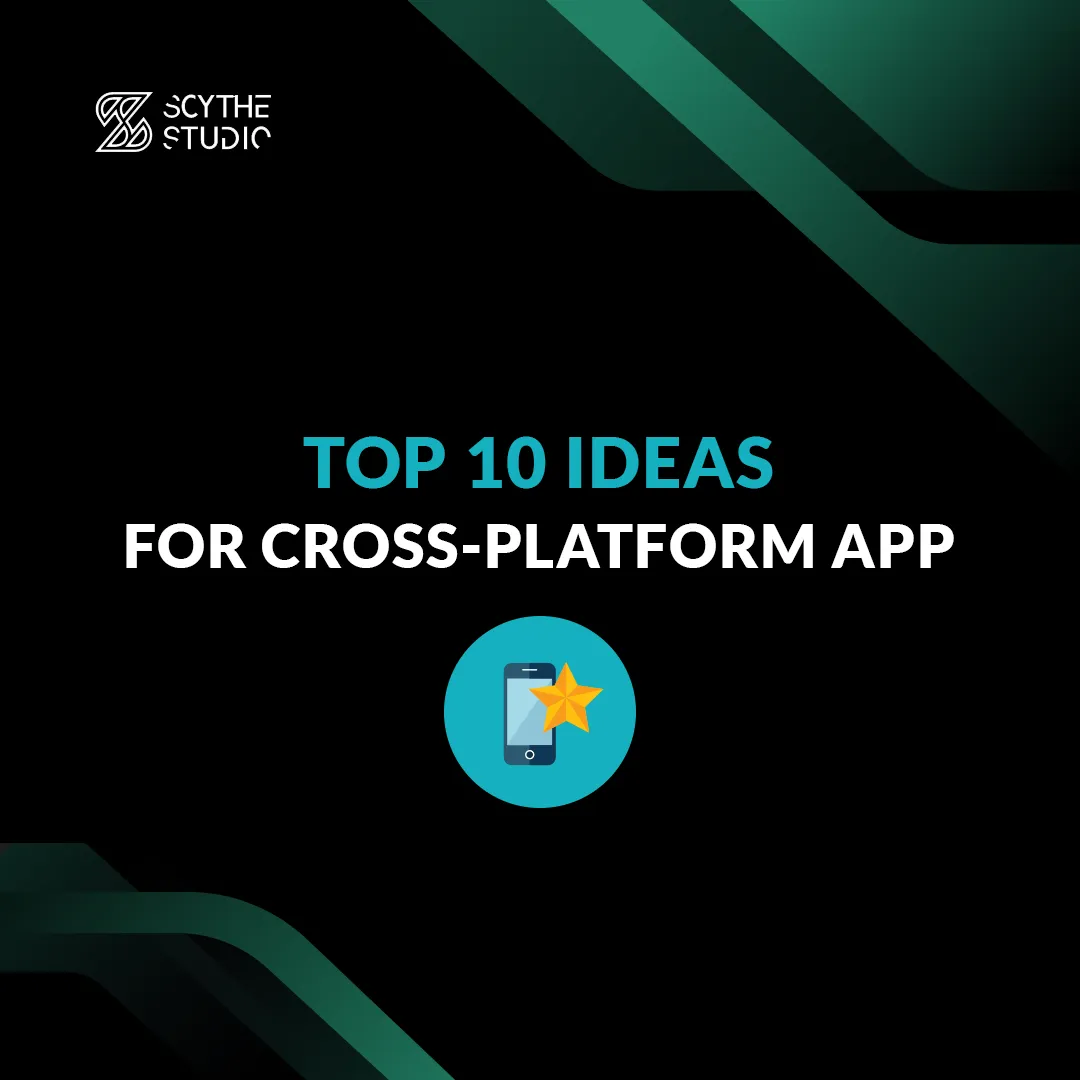
Cybersecurity for Embedded Systems
From medical devices and smart vehicles to industrial controllers and consumer electronics, embedded systems are everywhere—and increasingly connected. But with […]
Join us at Qt C++ Warsaw Meetup - 21.08.2025
Sign up for free!
When developing an application you want it to be as enjoyable for clients as it’s possible, so you take much care of application design, functionality and usability. However, although these are crucial elements, there is still one more factor impacting the success of your product – availability. That means you should also focus on releasing app across multiple platforms, whenever it’s possible. With this approach, users can easily access your product on their favourite device.
But how to create such a multiplatform app? Well, you could create the same application natively for each platform. This way you assure, that app will run smoothly and will be able to use all resources, which comes with a targeted platform. However, it comes at a price. This way you would have to use several, often significantly different programming tools for each platform – that means hiring more development teams in order to deliver the final product. This generates additional costs and delays the release of your application.
What’s an alternative? Use a cross-platform framework! Why it might be a more suitable solution? First, it helps you to keep your technology stack low. If you’re wondering what’s technology stack, and why it should be kept low, take a look at one of our previous blog posts. Creating apps in a cross-platform framework is also much less complex than using the native approach because you only have to take care of a single technology toolset. This means you can create an app, which will behave in the same way across multiple platforms, using only one codebase. With this approach you save money, and time, which you would normally spend on creating applications separately for all targeted platforms.
Now you may ask, what kind of applications could be created with cross-platform frameworks? There isn’t one simple answer to this question, however, we’ve prepared for you a short list of application ideas, which could be created using cross-platform frameworks. Treat this list as an illustrative example of what can be achieved using these frameworks.

Users often want to store their important documents, personal images, or other meaningful files on many devices. It’s not practical to carry them on an external drive – in that case he would have to take that drive everywhere where they needed these files. Cloud storage is the solution here. With this approach, the user has access to his files from any place in the world. To create a cloud storage app you have to develop a user-friendly app for mobile, and desktop devices, so user can easily upload/download their files at any time, and, obviously, you also need some backend app or service to store and retrieve files, and information. The client application can be created using Flutter or Qt framework.

Today you can often hear about various leaks of sensitive, often very personal data. Fortunately, people are more and more aware of the importance of protecting their data, so they decide to use different passwords everywhere and encrypt their data. However what if users would like to manage their encrypted files across different platforms? That’s why an encryption manager is a good idea for a cross-platform app. You could create a set of public and private keys, with which you would encrypt and decrypt any kind of data: sensitive files, messages and much more. What framework should you use? Well, data encryption is a complex process, which often requires many heavy calculations to be done. You should consider using a framework, which is based on an efficient language, like C++. A great instance of such is the Qt framework. To make things even easier, the Qt framework allows linking external C++ libraries, like qca. This library comes with QtCrypto class, with which you can encrypt/decrypt files in a few lines.

Using a different password for every website and service may prove problematic, so when talking about security we cannot forget to mention password manager. Usually, in the case of password managers, passwords are stored in an encrypted database file protected by one, main password. This way users can save and access their passwords easily on any device. Additionally, you can combine this app with a cloud storage solution, so users wouldn’t have to worry about storing database file on their own. What framework would be the best? Again, you can use the Qt framework to easily create such an app. With Qt it’s easy to develop an application with an eye-catching appearance using QML based fronted, while keeping fully functional logic with a help of C++ backend. Qt framework also comes with a set of database classes, which combined with encryption mentioned above would provide safe, and efficient storage of user’s passwords.

When talking about encryption we should also mention cryptocurrencies. Most of you probably know what they are – virtual money, which transactions are protected by cryptologic operations. More and more institutions are currently accepting payments using crypto, so there is growing interest in cryptocurrency wallets. Since there is a lot of operations on a cryptocurrency exchange, when creating such a wallet you should also bet on a framework, which is based on fast, and efficient language. That’s why Flutter or Qt framework would be the best choices.

People have less and less time. The number of duties is constantly growing, and we often need to organise our tasks in order not to forget them. A great solution is a handy to-do manager, with which users can add their ideas or duties at any time of the day. Tasks could be added by simply typing their name, with voice messages, or with images reminding them about tasks. What framework would be most suitable for such an app type? The answer is Qt Framework – it allows to easily create applications not only for mobile devices, and desktops, but also for embedded systems.

There’s nothing more helpful than a handful list of required items when you go shopping. However, we often don’t have time to write down all the required items. Moreover, when creating such a list it’s possible, that we forget about something. A shopping list mobile application would be a solution. Users could search for products by name, or by their code with the use of open APIs like Google’s for searching products, or Open EAN and GTIN database for searching codes. Additionally, if the user does the same shopping every month, he can save the created list for later use. Another interesting feature would be storing consumable items, like milk, eggs etc., and then reminding the user after a specified time, that these items might have finished up yet. What cross-platform framework should you use? Since an app of that kind isn’t very complex, you can use any lightweight framework like Ionic.

More and more people are choosing a healthy lifestyle. This often requires people to perform additional physical activities, and change their eating habits. In that case, beneficial would be a calories calculator, in which the user could easily add consumed meals. Additionally, you could scan products’ EAN code, and then search it in the database. Application of that kind could be easily made using the Qt framework. It comes with a lot of useful classes, like QSettings for saving data, or QNetworkAccessManager to handle HTTP requests. Additionally, you can use our SCodes library to scan QR and barcodes.

Games, like streaming services, are the most chosen form of entertainment. Playing games is a great way to relax, and pass the time. Once you have an idea for a game, you should consider releasing it to as many platforms as game type allows it. More users can reach your game then, meaning you earn more money. What cross-platform frameworks are best for creating games? Unreal Engine and Unity are two commonly used tools, which allows you to create 2D and 3D games across multiple platforms. You can also create simple games using the Qt framework with the addition of Felgo SDK, which comes with a handset of useful tools for developing such games.

Nothing is more relaxing, than watching your favourite movie or listening to best-loved songs after work. That’s why there is a lot of interest in streaming platforms. However key to their success lies not only in a wide range of titles but also in availability – it’s comfortable to watch series on phone in bed, on TV or on desktop. Assuming you have a server, and database for sending data, you can easily create a streaming app using the cross-platform framework, like React native. You can use the Qt framework as well – as you can see, this framework is suitable for most project types.

We all like watching movies and series, or playing games online, but we also like to stay connected with our friends, and family – that’s why we are using communicators to text/call them. When creating a brand-new communicator you have to take care of security, availability, but, most importantly, you should also make it accessible across multiple devices. That’s why the cross-platform framework is the best choice here. You can create a web-based platform using React.js, and a cross-platform application using Xamarin, but you can also use Qt to create functional multiplatform app.
As you can see, there are uncountable uses for the cross-platform framework – the sky is the limit. If you have your own, unique idea feel free to contact us. Let’s forge your idea into a software product together.
Let's face it? It is a challenge to get top Qt QML developers on board. Help yourself and start the collaboration with Scythe Studio - real experts in Qt C++ framework.
Discover our capabilities
From medical devices and smart vehicles to industrial controllers and consumer electronics, embedded systems are everywhere—and increasingly connected. But with […]

Hey, welcome back to another blog post. Today we’re going to talk about the new Qt WebAssembly. This post will […]

Users of embedded devices – from industrial controllers to consumer electronics – are often unaware of hidden vulnerabilities that threaten […]